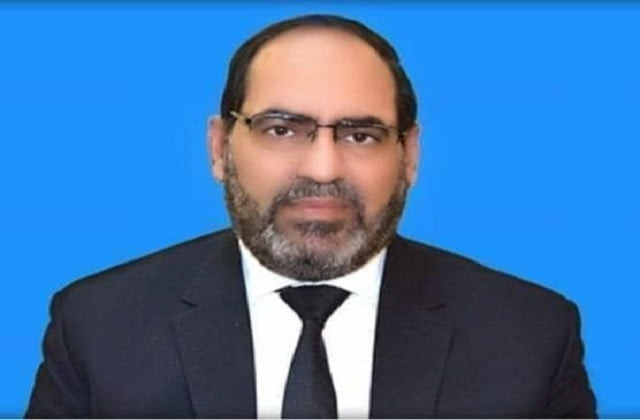Islamabad:
Two members of the Constitutional Banc of the Supreme Court (CB) observed that the transfer of three judges of different high lessons to the High Court of Islamabad (IHC) was marred by maliciousness and aimed to take control of the IHC.
In a dissident note of 40 pages written by judge Naeem Akhtar Afghan and approved by judge Shakeel Ahmad, the judges noted that the permanent transfer of three judges to the IHC had brought a “serious blow to the independence of the judiciary”.
On February 1, the Ministry of Law published a notification for the transfer of judge Sardar Muhammad Sarfraz Dogar, judge Khadim Hussain Soomro and judge Muhammad Asif – in a respectful manner of the High Court of Lahore (LHC), the High Court of Sindh (SHC) and the high court of Balochistan (BHC) – for Sindh.
Following this transfer, approved by the president, the IHC has published a new seniority list, classifying Judge Dogar as the main judge. Five IHC judges have filed representations against this seniority list.
However, the IHC chief judge, Aamer Farooq, rejected these representations. The judges of the IHC and other petitioners, including Imran Khan, challenged the notification of the ministry as well as the new seniority list before the Supreme Court, of which the CB of five members heard the case.
On June 19, the CB led by J. Muhammad Ali Mazhar declared that the transfer of the three judges was not unconstitutional with a majority decision of 3 to 2. The Afghan judge and Ahmad judge, however, dissidents of the majority order.
The dissident note indicated that the transfer process of three special judges to the IHC had been initiated and completed by the Ministry of Law with unnecessary haste – not in the public interest but, prima facie, with the reason to deprive the main judge of Purchase then the chief judge of the IHC.
“”[it also aimed at taking] Control of the IHC and the judiciary of district of [Islamabad] Judges in office of the IHC, handing it over to the assignee and additional judges under the supervision of judge Dogar, first as a higher then judge and later as CJ and CJ acting from the IHC. “”
Dissidential opinion indicated in law, an action motivated by ulterior motives constitutes in fact maliciousness, while an action so unreasonable, improbable or manifestly illegal is not the field of application of the law under which it is allegedly taken constitutes maliciousness. The two dissident judges concluded that the transfers in question suffered from maliciousness in fact as well as maliciousness.
They stressed that the rule of law and strict adhesion to the Constitution by all the organs and institutions of the State are essential to the prosperity and the national interest of Pakistan. The decrees, they warned, must note constitutional limits and must not be arbitrary or capricious.
They warned the government that the short -term gains obtained by violating the Constitution would ultimately be undermined the country’s long -term interests for stability, legitimacy and the rule of law.
They also observed that the file has not revealed any criteria to select the three judges of transfers to publish on the IHC.
“Judge Dogar was in series No. 15 In the LHC seniority list, judge Khadim Hussain Soomro was in Serion n ° 20 in SHC, while Judge Muhammad Asif had only been appointed recently BHC judge on January 18, 2025.”
The dissident judges wondered why all the senior judges of judge Dogar in the LHC, judge Soomro in the SHC and the Asif judge in the BHC were ignored or not considered to be transferred to the IHC.
They also noted that in all the letters written by the ministry of Law requesting the consent of the judges of the assignee and the agreement of the chief judges of the High Court and the chief judge of Pakistan, the nature of the transfer (permanent or temporary) neither the question of seniority or fresh oaths were mentioned. No contribution has been requested from the competent authorities.
They declared that the chief judge of Pakistan Yahya Afridi had also been held in the dark by the ministry on the nature of transfers and the seniority of the judges of the assignee.
The note has also judged that by virtue of article 200, paragraph 1, of the Constitution, the president can order the transfer of a judge from the high court to another high court, but such a transfer cannot be permanent and must be temporary.
“Instead of filing the five vacant posts available from judges in the IHC, only two were filled on January 17, 2025, while three vacant stations were deliberately left vacant to be fulfilled later by transferring three judges of different lessons under the clothes of the president’s discretionary powers under article 200 (1)”, the dissent noted.
Opinion said that transfers have created turbulence within the IHC, damaging collegiality among its judges and disrupting proper functioning, thus causing difficulty for litigants. They added that the transfers had frustrated the legitimate expectations of the seated judges of the IHC.




